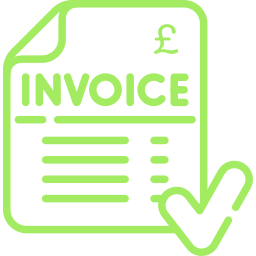If you want to purchase a property for your business then you’ll need to apply for a commercial mortgage. Assuming you have found somewhere for your business to move into you will need to consider a number of factors before getting one.
Step 1 – Assessing your finances
Can you repay your monthly payments? Because most lenders require evidence that your business can repay the loan, you need to demonstrate that your finances can support your mortgage payments. At this point, it would be practical to consider the maximum amount your business can afford to pay per month.
Step 2 – Finding a property
Knowing you need premises for your business is less than half the battle, you also need to think about what you need from that premises. Size is definitely important but so are your health and safety requirements. If you are transporting your product or looking to attract customers then you will need to ensure it is easily reachable and close to transport links. Creating a list of key requirements is a good starting point and will help pinpoint suitable locations.
Step 3 – Finding a lender
There are many types of lenders to approach when considering commercial mortgages. It isn’t necessarily on the high street that you’ll find the best rates or the best deals. You can certainly approach your bank or building society but be aware that there are many specialist commercial brokers that can access commercial finance for specific business sectors, including the one you work in. They can often find deals that you probably won’t be able to find or access without their help.
Step 3 – Your cashflow
Your business will need cashflow in order to survive and thrive. Cashflow enables your business to pay bills, expenses, wages and for taking advantage of growth opportunities. Before applying for a mortgage on a commercial property, assess your cashflow to help identify and predict how the cash in your business changes over time; is it seasonal?. Bear in mind all lenders will require evidence of cashflow and forecasts when you apply for a commercial mortgage, so it is essential you understand what access to cash you will have at any given time.
Step 4 – Creating a business plan
Most lenders will require plenty of information before they consider lending you large amounts of money. Here’s where you define your business. What type of business do you offer and what are you doing to make it succeed or become more profitable? If it is a new business then it will be important to ensure that you have all the relevant permissions (for instance pub licensing etc.). The more detailed your business plan and projections the more confidence lenders will display. Ensure you include information about:
- Your business
- Your expertise
- Your products or services
- Your customers
- Your pricing
- Your future
Step 5 – Provide credit reports
Lenders want to know not just your credit report, but also other information that will identify the financial stability of your business. This may include payslips and three or more years’ worth of company accounts. While it is often thought that only those with perfect credit can obtain a commercial mortgage, those that don’t shouldn’t give up. Going above and beyond to prepare your financial accounts, reports and projections can also convince lenders you are worthy. However, it is common sense to ensure any credit issues are resolved before applying.
Step 6 – Key stakeholder details
Lenders need to know who will be involved in the business and who is responsible for paying and making the repayments. This means providing the personal details of the key stakeholders in the business to be credit-checked. This includes the asset and liability statements for each applicant. Be honest and complete in who owns how much of the business and who is ultimately going to be responsible for satisfying the financial commitments.
Step 7 – Other fees and costs
Taking a mortgage on a commercial property will also mean being hit with other fees and costs. You will need to consider arrangement fees, valuation fees and legal fees. You might also want to think about possible redemption fees if you decide to pay off the balance of your mortgage early. Also, remember stamp duty for commercial property buying has also just been changed in the last budget, be aware of how much you’ll need, it could be more than you think.
The more information you can provide the better when you apply for a commercial mortgage; lenders love asking questions and having to hand full and complete answers makes your mortgage application more likely to succeed.
If you are interested in finding out more about commercial mortgages and how they can help your business, call us on 0333 006 9141 or request a call back.






















